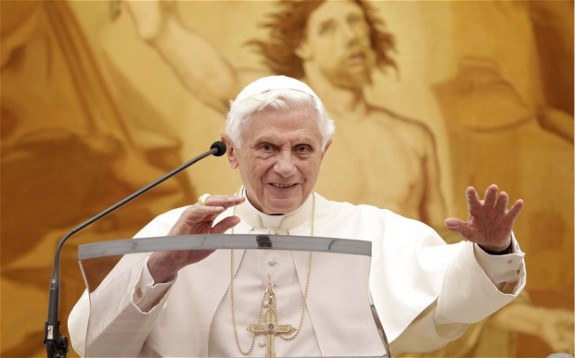By now, you’ve likely heard the big news that Pope Benedict XVI is retiring on February 28. I was recently asked to share my thoughts on the Pope’s legacy in 300 words or less. Here’s what I wrote:
As an Evangelical Christian in 2008, “God’s Rottweiler” worried me. From what I knew he was a cold and stodgy disciplinarian with a hyper-traditionalist streak, more likely to crack a whip than save a soul.
But then I became Catholic. After devouring his books and studying his addresses, I discovered a much different man. Three traits particularly stuck out, and they remain keys to understanding his legacy:
First, his commitment to reason. In the Pope’s important Regensburg lecture in 2006, he noted, “Even in the face of such radical skepticism it is still necessary…to raise the question of God through the use of reason.” Throughout his pontificate Pope Benedict affirmed that faith and reason are not enemies; they’re friends. He’s shown that the mind is a road to God.
Second, his evangelical focus. In a recent speech to Filipino prelates, Pope Benedict summed up the Church’s mission: “to propose a personal relationship with Christ.” That’s what Catholicism is all about—friendship with the Risen Lord. And it’s why Pope Benedict has poured himself into the New Evangelization, an effort to re-propose this relationship to a distant world.
Third, his embrace of the new media. From launching a new Vatican website, to using an iPad, to tweeting to millions of people in eight languages, the Pope is no stranger to technology. “Without fear,” he told a group of bloggers, “[the Church] must set sail on the digital sea.” Yet who pictured an octogenarian Pope leading the way? Over the years, the Pope has keenly recognized that most people are online, so that’s where he’s steered the Church.
We don’t know who the Holy Spirit will choose as his successor. We don’t know what travails lie ahead. But we do know that Pope Benedict has charted a sure future for the Church, one that is eminently reasonable, deeply evangelical, and firmly committed to new methods of evangelization.

